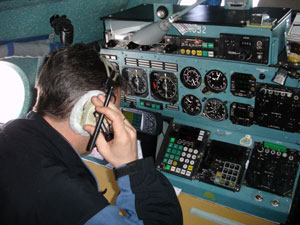Radio Operator
Tasks & duties

Radio operators may do some or all of the following:
-
monitor national and regional radio frequencies, including VHF, HF and channel 16 (emergency channel)
-
send and receive messages
-
keep a log of messages sent and received
-
broadcast weather reports and warnings
-
answer queries from boaties
-
listen for and answer distress signals
-
work with emergency maritime services to find and rescue vessels
-
monitor the operation of equipment
-
may make minor repairs to radio equipment
Skills & knowledge

Radio operators need to have:
-
knowledge of international distress and safety signals, such as SOS
-
knowledge of international radio procedures
-
knowledge of New Zealand's geography and coastal waters
-
good pronunciation and excellent communication skills
-
the ability to record information while fielding radio calls
-
word processing and computer skills
Entry requirements
There are no specific requirements for becoming a radio operator. Recruits go through an intensive training course after they start their employment.
Training on the job
Skills are gained on the job. New recruits complete a 14-week training course, then sit a series of theory and practical tests and have their abilities assessed during 30 simulated incidents.
Further equipment and radio procedure tests may follow. The entire training period is 18 months.
Useful experience
Useful experience includes radio broadcasting, working in a call centre, working with computers, or recreational boating experience. A military background (as it involves basic radio procedure training) is also useful. Knowledge of the sea, geography, communication systems, or weather could help employment chances.
For more information, please refer to Career Services.
Document Actions
